A Basic Layout Kit
Well-made furniture and cabinets start with accurate layout tools.
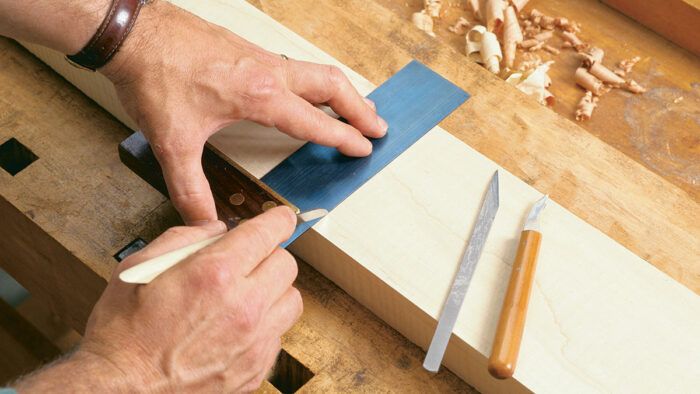
Synopsis: A good try square, a ruler, and a marking knife are the fundamental layout tools that few serious woodworkers can get along without, writes Horst J. Meister. Add a marking gauge, a protractor, and a set of dividers and trammels and you’ll have a basic layout kit. Meister explains how he uses machinists’ layout tools, which are just as accurate and cost less money. He talks about how to find quality tools, how to evaluate what’s out there, and which sizes to consider. Use a knife, not a pencil, to mark your lines. He discusses marking and mortising gauges and bevel gauges and protractors. You’ll also learn what not to get and what to replace with something better.
I was 15 years old when I built my first cabinet. Shortly before my mother’s birthday, I overheard her tell my father that she would really like to have a little cabinet for her sewing room. The very next Saturday, I locked myself in the garage with a generous supply of redwood boards, a bent aluminum yardstick, a box of dowels, glue, a crosscut saw and three Snickers candy bars.
The finished piece fell a little shy of my expectations. Believing that square corners were a very desirable feature in furniture, my dad gave me a try square for my 16th birthday. Soon, my woodworking projects improved to the point that people other than my mother liked what I made.
A good try square, a ruler, and a marking knife are the fundamental layout tools that few serious woodworkers can get along without. Add a marking gauge or mortising gauge, a bevel gauge, a protractor, and a set of dividers and trammels and you’ll have a basic layout kit. Why spend the money? Good quality layout tools will last a lifetime, and flawed measurements will plague a project through every stage. Even small errors are a detraction if they occur in a prominent place.
I have obtained excellent results in woodworking using some of the machinist’s layout tools that are standard equipment in the tool and die industry. And they often cost less than comparable tools specifically designed for woodworkers. They’re not as pretty as the best woodworker’s tools. However, good looks don’t get the job done- accuracy does.
From Fine Woodworking #121
To view the entire article, please click the View PDF button below:
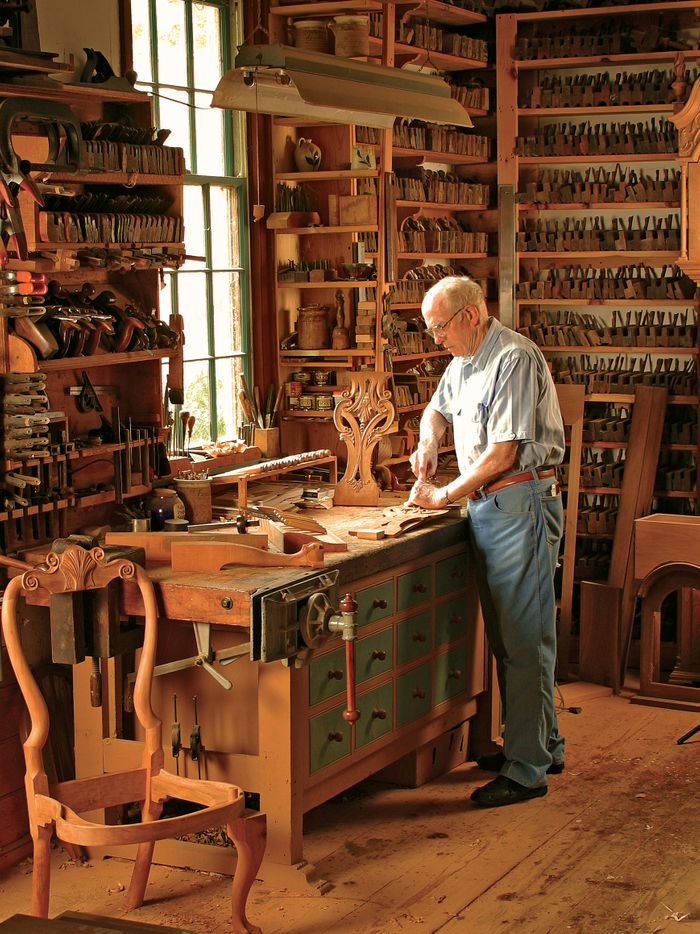
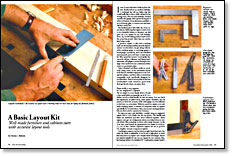

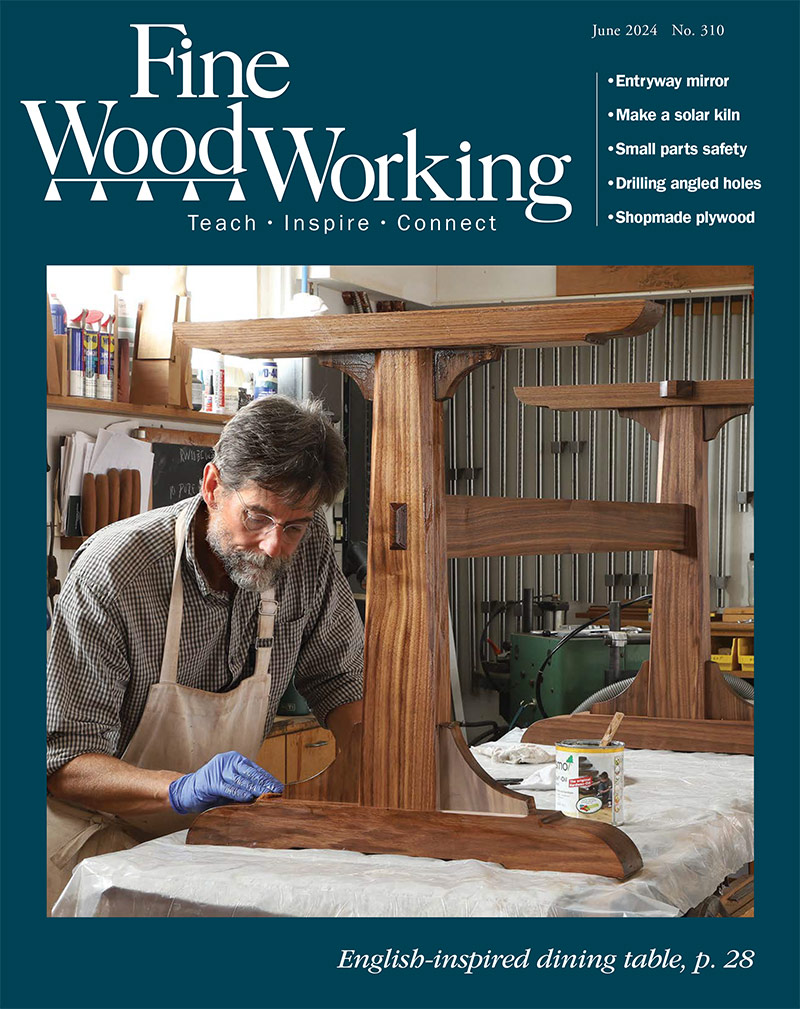
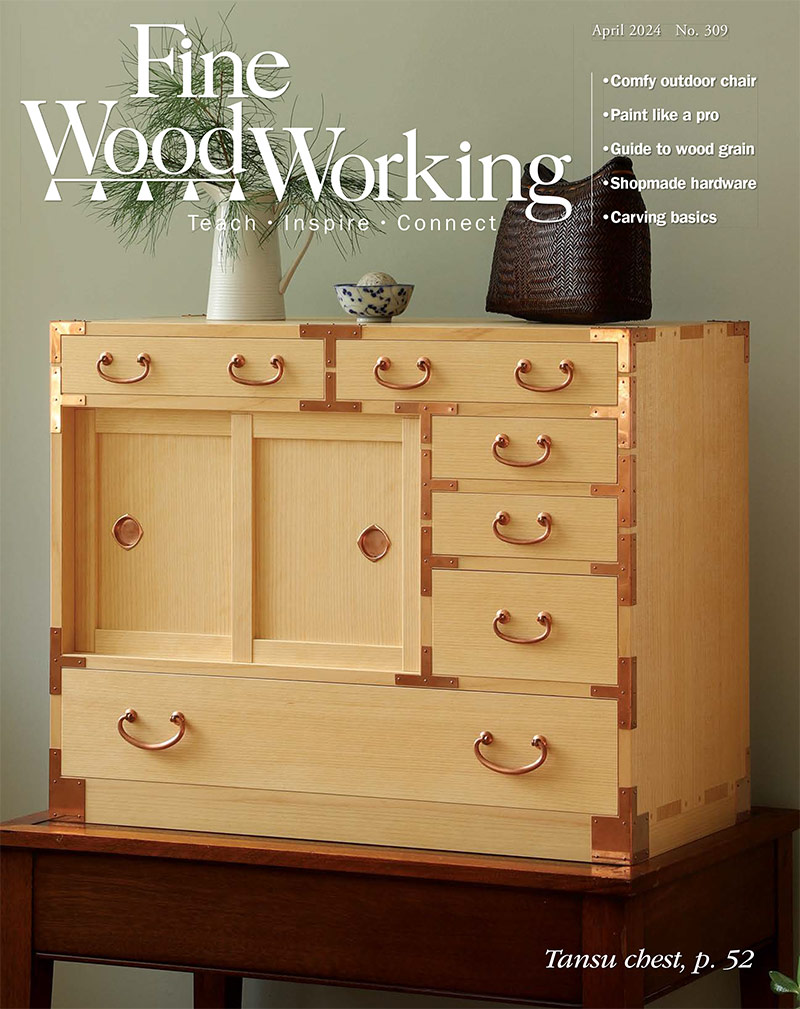
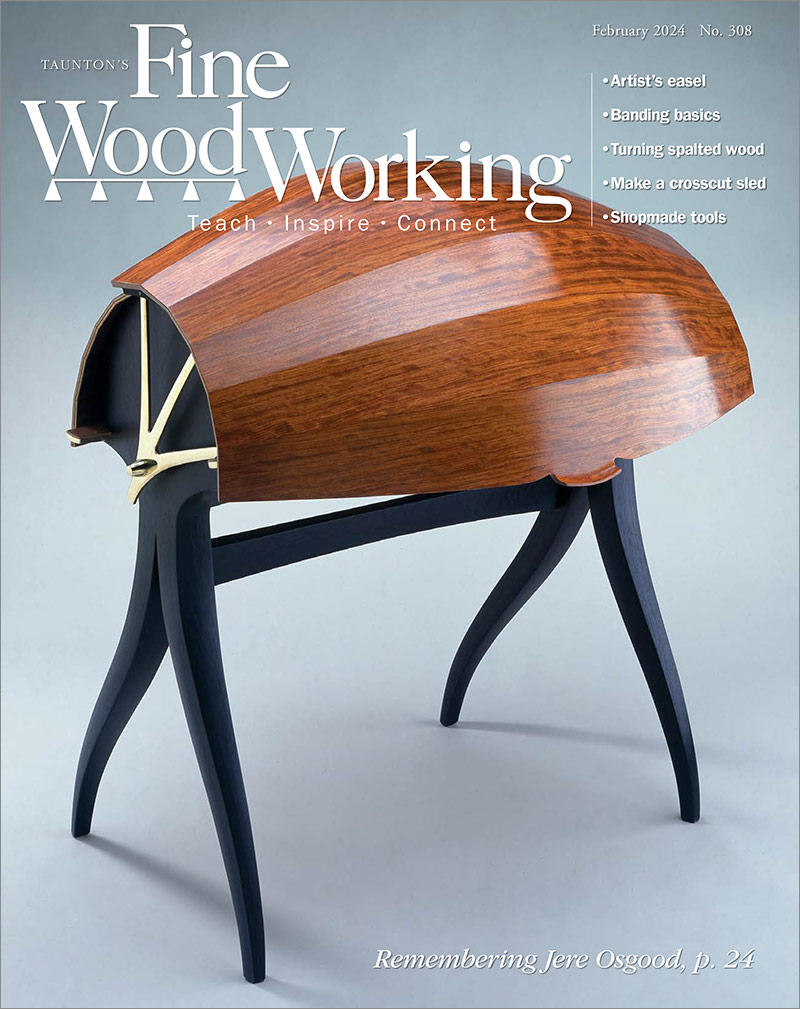
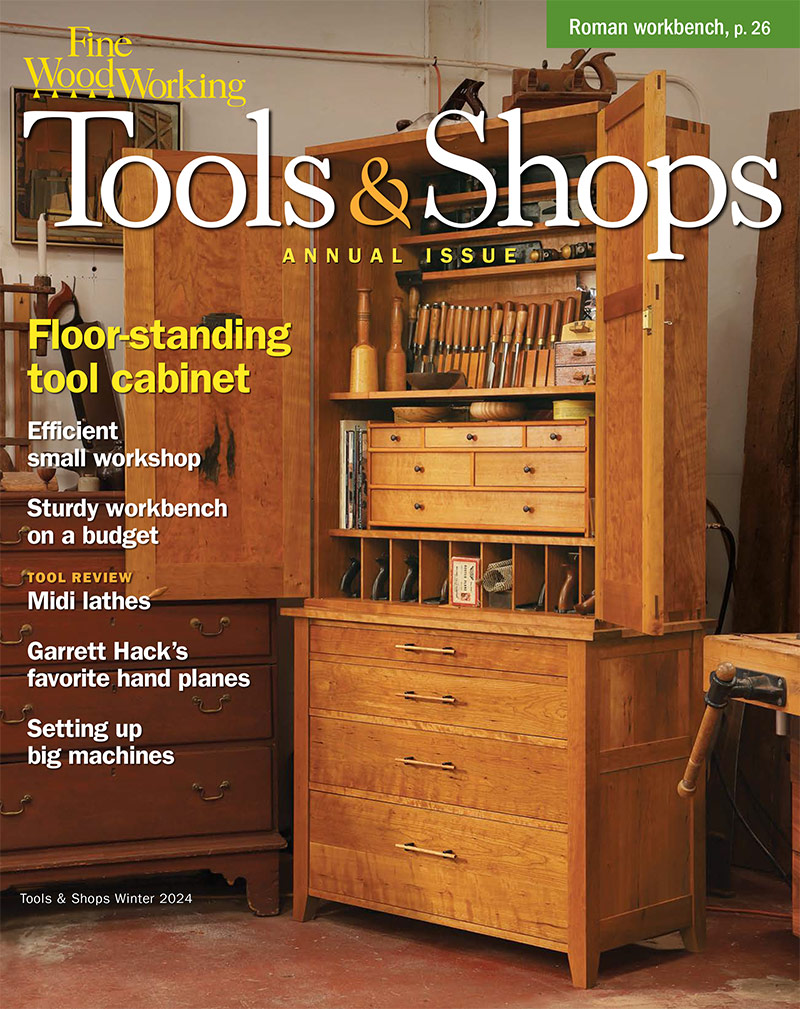
Log in or create an account to post a comment.
Sign up Log in